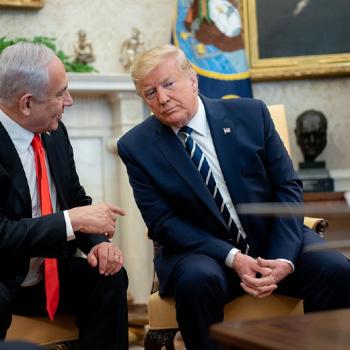An Obama visit to Israel might just help chivvy along some kind of formula over settlement building that would enable the current Israeli government to honor its own platform and the American president to save face. But mainstream Israel's discomfort with the president's calls for a settlement freeze is not a function of his Israel-free travel itinerary to date. It is, rather, a consequence of his having pressed emphatically for a halt to all building -- in east Jerusalem and Ma'aleh Adumim as well as at remote isolated settlements and outposts.
Into one undistinguished whole, the Obama administration has lumped those areas where most Israelis insist we have the right to build (in parts of Jerusalem to which Israel extended sovereignty after the 1967 war), along with areas most Israelis would like to retain under a permanent accord (such as Ma'aleh Adumim and the Etzion Bloc), together with settlement areas most Israelis would be prepared to relinquish under a permanent accord (dozens upon dozens of settlements beyond the security barrier) and minor settlements that this government vows it is about to remove (the illegal outposts).
By removing the distinctions between these categories of settlement, the administration has galvanized a far larger body of Israeli opposition to a freeze than would have resulted from a more nuanced approach -- in the process undermining its own efforts to foster support for compromise.
Moreover, by pushing so relentlessly for a freeze even as it has failed to push for significant steps toward normalization from key Arab players such as Saudi Arabia, it has left Israelis bristling and bemused. Why, it is quite widely wondered here, does the U.S. administration seem convinced that, if only Israel would freeze settlement building, harmony and peace would ensue, when so many Palestinian and Arab utterances make the opposite conclusion so unavoidable? By extension, if the U.S. is so wrongheaded about this, how much of a risk can Israel really take with this administration as it seeks to mediate an accord?
And let there be no doubt: Israel is already taking security risks, in the shape of eased restrictions on Palestinian movement in the West Bank, and in the shape of support for the widening authority of U.S.-trained Palestinian security forces.
An Obama visit would be encouraging, welcome, and almost certainly constructive. Israel would certainly be pleased to hear directly from the president. But the voice we need to hear is that of Abbas -- an Abbas speaking to his people and to ours in terms he did not employ at Fatah's Bethlehem gathering. An Abbas countering the duplicitous Arafat's assertion to the Palestinian public that the Jews have no rights and no legitimacy here. An Abbas explaining to his people and to ours that we are fated to live together and that he will meet us on the road to a better future.
The trouble is that it gets ever harder to believe that Abbas is indeed a Palestinian leader devoted to compromise when he, by his own admission, so derisively rejected Ehud Olmert's unprecedented peace overtures. It gets ever harder when Abbas presides over the relegitimization of the murderous Aksa Martyrs Brigades at a Fatah conference that did anything but advance prospects for reconciliation.
Worthy columns and editorials notwithstanding, you see, it's not what the U.S. president isn't saying directly to us that's most worrying for Israelis. It's what the Palestinian leadership is saying, to its own people and to anyone else who's listening: far too much that is deeply troubling, and far too little that engenders good faith.
David Horovitz is the Editor of The Jerusalem Post. This article was first printed in The Jerusalem Post and is reprinted with permission.




